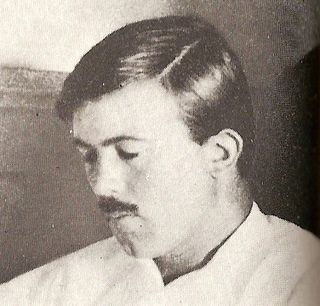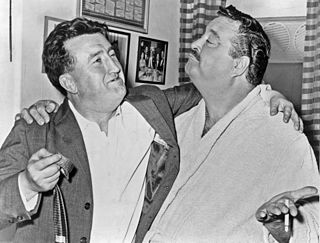A Quote by James Joyce
And in spite of everything, Ireland remains the brain of the Kingdom. The English, judiciously practical and ponderous, furnish the over-stuffed stomach of humanity with a perfect gadget--the water closet. The Irish, condemned to express themselves in a language not their own, have stamped on it the mark of their own genius and compete for glory with the civilized nations. This is then called English literature.
Related Quotes
James Joyce's English was based on the rhythm of the Irish language. He wrote things that shocked English language speakers but he was thinking in Gaelic. I've sung songs that if they were in English, would have been banned too. The psyche of the Irish language is completely different to the English-speaking world.
I have a funny relationship to language. When I came to California when I was three I spoke Urdu fluently and I didn't speak a word of English. Within a few months I lost all my Urdu and spoke only English and then I learned Urdu all over again when I was nine. Urdu is my first language but it's not as good as my English and it's sort of become my third language. English is my best language but was the second language I learned.
I do go back to Ireland, and I'll probably be doing a film in Ireland in January, and I guess that kind of keeps me classified as 'the Irish actor,' but the last four or five projects that I've been in are either American or English, so I don't feel terribly trapped in that. But sometimes, yeah, you would like to not be called 'the Irish actor.' You'd prefer to just be called 'the actor.'
We do not for example say that the person has a perfect knowledge of some language L similar to English but still different from it. What we say is that the child or foreigner has a 'partial knowledge of English' or is 'on his or her way' towards acquiring knowledge of English, and if they reach this goal, they will then know English.
We are always giving foreign names to very native things. If there is a thing that reeks of the glorious tradition of the old English tavern, it is toasted cheese. But for some wild reason we call it Welsh rarebit. I believe that what we call Irish stew might more properly be called English stew, and that it is not particularly familiar in Ireland.
I realized over the years if I'm writing about humor, irony, satire, I much prefer to do that in English. And if there is sorrow, melancholy, longing, I much prefer to do that in Turkish. Each language has its own strength to me, and I feel connected and attached to both Turkish and English. I dream in more than one language.
Malcolm Bradbury made the point, and I don't know whether it's a valid one or not, that the real English at the moment is not the English spoken in England or in America or even in Canada or Australia or New Zealand. The real English is the English which is a second language, so that it's rather like Latin in the days of the Roman Empire when people had their own languages, but had Latin in order to communicate.






































